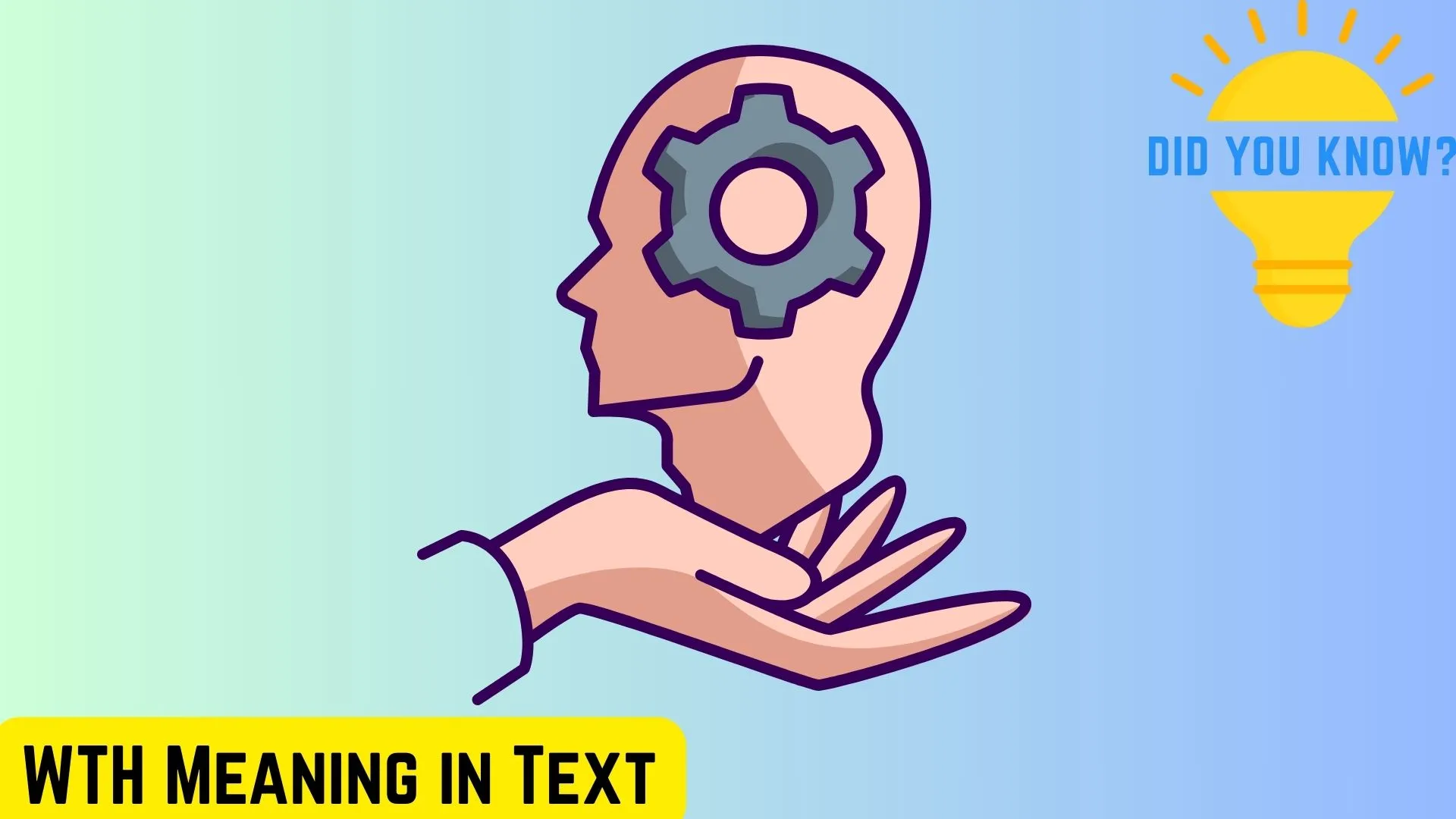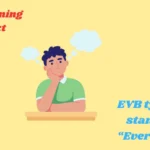Ever received a message that simply says “WTH” and wondered what it means? You’re not alone. In today’s fast-paced world of texting, social media, and instant messaging, acronyms like WTH pop up everywhere.
They make conversations faster but can confuse anyone unfamiliar with the slang. People search for the WTH meaning in text to decode messages on platforms like Snapchat, WhatsApp, or even in workplace chats.
Understanding what this acronym stands for—and how it comes across—is important to avoid misunderstandings. Whether you’re chatting with friends, responding to a surprising email, or scrolling through social media, knowing when and how to use WTH can help you communicate more effectively.
This guide breaks down the meaning of WTH, explores whether it’s rude, and offers plenty of polite alternatives to use depending on the context.
What WTH Actually Stands For
WTH is short for “What the heck.” Sometimes people also interpret it as “What the hell,” depending on the tone or intensity of the conversation.
It expresses surprise, confusion, or disbelief, similar to saying “What is going on?” The phrase became popular in casual texting and online chats because it’s quick to type and conveys a strong reaction.
While “heck” is a softer version, some still find “hell” mildly offensive. That’s why understanding your audience before using WTH is crucial.
Is WTH Considered Rude or Offensive?
WTH isn’t a curse word by itself, but it can sound edgy depending on how it’s delivered. The “heck” version is generally mild and family-friendly, making it safe for casual conversation. However, when interpreted as “what the hell,” it may be seen as slightly impolite, especially in professional or formal settings.
Tone matters: using WTH jokingly among friends is usually harmless, but in a work email or a message to someone you barely know, it might come across as disrespectful.
What Does WTH Mean in Text?
In text messaging, WTH serves as a quick reaction to something surprising, confusing, or unbelievable. For example:
- “WTH! I thought the meeting was tomorrow.”
-
“WTH happened to the car?”
It’s a shorthand for expressing shock or confusion without typing a full sentence. Teenagers, young adults, and even professionals use it for speed and impact.
WTH Meaning in Urdu
In Urdu, WTH translates to expressions like “Ye kya baat hai?” or “Ye kya ho raha hai?” Both mean “What is this?” or “What’s happening?” Depending on the situation, people might also say “Kya baat hai!” to show surprise.
Remember, it’s still an English acronym, so many Urdu speakers use WTH in its original form while chatting online.
What Does WTH Mean in Snapchat
On Snapchat, WTH is typically used in reaction to unexpected snaps or surprising stories. For example, if someone shares a shocking photo, a simple “WTH” reply communicates instant disbelief.
It’s part of the fast-moving, informal language that Snapchat users love—short, sharp, and expressive.
WTH Meaning in Schedule
Sometimes people see “WTH” in a schedule or planner. Here, it usually doesn’t mean “What the heck.” It could be an internal abbreviation such as “Work Time Hours,” or a code used by a company.
Always check the context—if it’s a work calendar, WTH might be a specific shorthand unrelated to texting slang.
WTH Meaning in Work
In the workplace, WTH can be tricky. If you use it in a casual team chat to express shock—like “WTH, the project is already done?”—it might be acceptable among close colleagues. But in formal emails or when addressing senior staff, it can look unprofessional. If you’re unsure, use a more neutral phrase like “That’s surprising” or “I didn’t expect that.”
WTH Meaning From a Girl
If a girl texts you WTH, it simply means she’s surprised, shocked, or confused—just like anyone else. The meaning doesn’t change by gender. What matters is the tone. A playful “WTH 😂” is lighthearted, while a serious “WTH.” without emojis might signal frustration or disbelief.
When to Use WTH—and When Not To
✅ Okay to Use WTH When:
- Chatting casually with friends or family.
- Reacting to surprising news on social media.
- Responding to unexpected situations in informal group chats.
🚫 Avoid WTH When:
- Writing professional emails or official documents.
- Messaging people you don’t know well.
- Communicating with someone who might find slang offensive.
Tone Matters: How WTH Comes Across
The impact of WTH depends heavily on tone and context. Adding emojis or exclamation marks can make it sound playful: “WTH! 😅” feels lighter than a plain “WTH.” In contrast, using it in capital letters—“WTH!!!”—can seem aggressive or angry.
Why You Might Want Alternatives to “WTH”
Sometimes, WTH might feel too casual or slightly rude for the situation. Whether you’re at work, texting a teacher, or chatting in a professional group, you might need a softer phrase to express surprise or confusion.
15 Polite, Casual, or Professional Alternatives to “WTH”
- What on earth?
- What in the world?
- Seriously?
- I can’t believe this.
- What’s happening here?
- Excuse me?
- Wait, what?
- How did that happen?
- That’s unexpected.
- I wasn’t ready for that.
- This is… something.
- Now, that’s new.
- That caught me off guard.
- Color me surprised.
- Is this real life?
How to Choose the Right Alternative Based on Context
1. Audience
Consider who you’re speaking to. With friends, casual phrases like “Seriously?” work well. For professionals, try “That’s unexpected.”
2. Tone
Match your words to the situation. Playful shock? “Wait, what?” Serious disbelief? “I can’t believe this.”
3. Platform
Social media allows more casual alternatives, while work emails demand polished expressions like “This is surprising.”
Examples of WTH and Its Alternatives in Real-Life Context
- Casual Chat: “WTH! You adopted a puppy?!”
- Professional Email: “That’s unexpected; could you clarify the changes in the schedule?”
- Social Media Post: “Wait, what? That plot twist was insane!”
These examples show how to adapt your words to different settings.
FAQs
What is the difference between WTH and WTF?
WTF is more vulgar and stronger than WTH, which is considered a milder, more polite expression.
Is WTH appropriate for workplace chats?
Only in informal team chats with colleagues you know well. Avoid using it in emails or formal communication.
Can WTH mean something else?
Yes, in schedules or specific industries, WTH might be an internal abbreviation unrelated to “what the heck.”
How do you reply to someone who texts WTH?
You can clarify the situation or respond with an explanation. For example: “It’s true, I just got the promotion!”
Is WTH common in 2025?
Yes, WTH remains a popular texting abbreviation across social media and messaging apps.
Is WTH rude in Urdu culture?
Not particularly, especially when interpreted as “what the heck,” but avoid it in formal or elder conversations.
Does WTH have different meanings on Snapchat?
No, it typically means the same—surprise or disbelief—just in a more playful social setting.
Conclusion
WTH is a quick and expressive acronym that captures surprise or confusion in texts and social media. While it usually stands for “What the heck,” its impact depends on tone, context, and audience.
In casual chats, it’s harmless and even fun. But in professional or formal settings, it may seem unprofessional or slightly rude—so choose wisely. If in doubt, pick one of the many polite alternatives to keep your message clear and respectful. Understanding WTH meaning in text ensures you can both use and interpret it confidently in 2025 and beyond.




